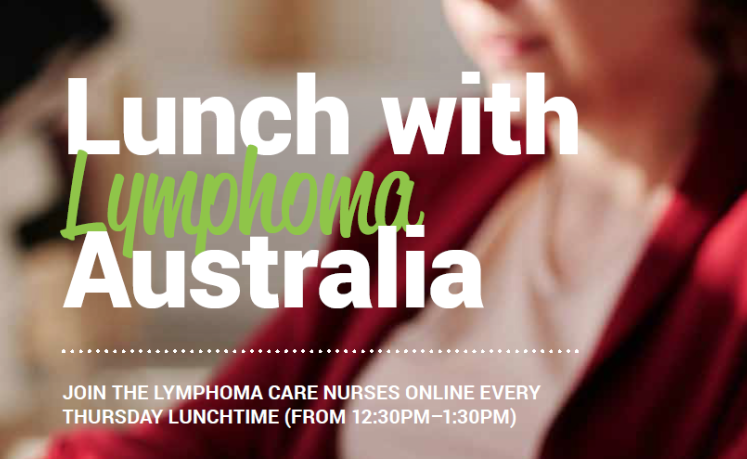
As part of our free community education, Lymphoma Australia is excited to announce a series of webinars.
Join the Lymphoma Care Nurses online at regular times throughout the year for a lunchtime webinar.
You will be introduced to one of our nurses, or a lymphoma specialist, each week, who will then lead a conversation on a different topic. Have your questions answered, hear from an expert and feel connected.
Please note that this Webinar Series has ended, but you can view all previous recordings below.
Previous Sessions and Recordings
Rebekah Needer, Lymphoma Care Nurse - QLD
Samantha Ormerod, Lymphoma Care Nurse - QLD
Rebecca Beck, Lymphoma Care Nurse - NSW
Donna Gairns, National Nurse Director
Rebekah Needer, Lymphoma Care Nurse - QLD
Presented by Dr Camille Short, Senior Research Fellow, Psychologist, behavioural scientist & researcher, Melbourne University